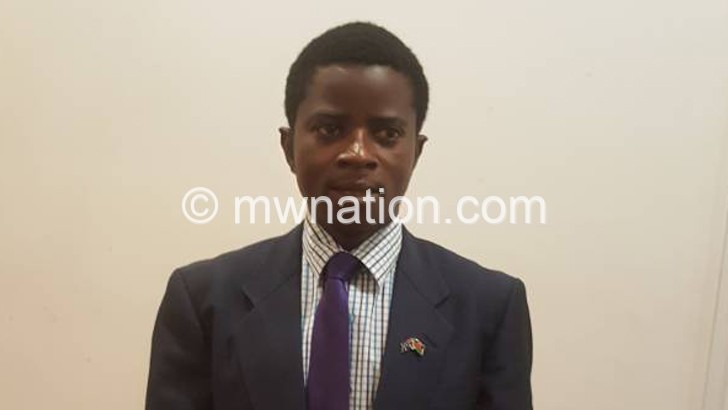The Anti-Corruption Bureau (ACB) has arrested Ministry of Energy director of energy Cassius Chiwambo for suspected corrupt practices in the procurement of suppliers for the Malawi Rural Electrification Programme (Marep) phase nine project.
In a statement signed by principal public relations officer Egrita Ndala yesterday, the bureau confirmed the arrest and said the suspect would be taken to court after being interrogated.

She said the bureau received an allegation on June 23 2021 that the Ministry of Energy deliberately side-lined the Internal Procurement and Disposal Committee (IPDC) in procuring powerline construction materials for Marep 9 in a contract under reference MAREP-PH9-G-NCB-2020/2021FY-08.
Ndala said: “The bureau conducted investigations into the allegation and established that Mr. Cassius Chiwambo abused his office by influencing the evaluation team to favour Deco, Ackon, KK Hardware, Gabs, Two Trees, Business Machines and West One, which were some of the bidders.
“On 15th December 2021, the bureau arrested Mr. Cassius Chiwambo. He will be taken to court to be informed of the charges. He is likely to be charged with two counts of abuse of office contrary to Section 25 B (1) of the Corrupt Practices Act.”
In June this year, the bureau stopped the Ministry of Energy from proceeding with the award of contracts for the multibillion kwacha project, but later in October ordered the ministry to restart the procurement process.
Marep Phase 9 is expected to cost the taxpayer at least K20 billion.
Last year, the Ministry of Energy floated tenders for the supply of various materials and the evaluation team spent about two months in Zomba scrutinising bids. However, the contracts have not yet been awarded.
In recent months, the energy sector has been embroiled in procurement controversy. Three weeks ago, the ACB also stopped the award of fuel
import contracts for the National Oil Company of Malawi (Nocma) amid Nocma’s fight with Malawi Energy Regulatory Authority (Mera) over perceptions of corruption.
Marep started in 1980 under Electricity Supply Corporation of Malawi as the implementing agency through donor financing. In 1995, the Government of Malawi took over implementation of the programme with the Department of Energy as the implementing agency.
By the end of phase eight, Marep had connected 1 127 sites to the national electricity grid. In the past 10 years, K80 billion has been invested in Marep.
The 2008 Energy Policy anticipated an increase in electricity coverage in Malawi to 30 percent by 2020. However, statistics show that about 12 percent of the population has access to electricity.
According to the Ministry of Energy on its website, the Rural Electrification Fund in the petroleum price build-up is the main source of funding for Marep activities.
Other sources of the fund include such sums as appropriated by Parliament for the purposes and sums or assets as may, from time to time, accrue to or vest in the fund by way of grants, subsidies, bequests, donations, gifts and subscriptions from the government or any person.
Source: The Nation_Thursday, December 16, 2021_by Joseph Mwale
